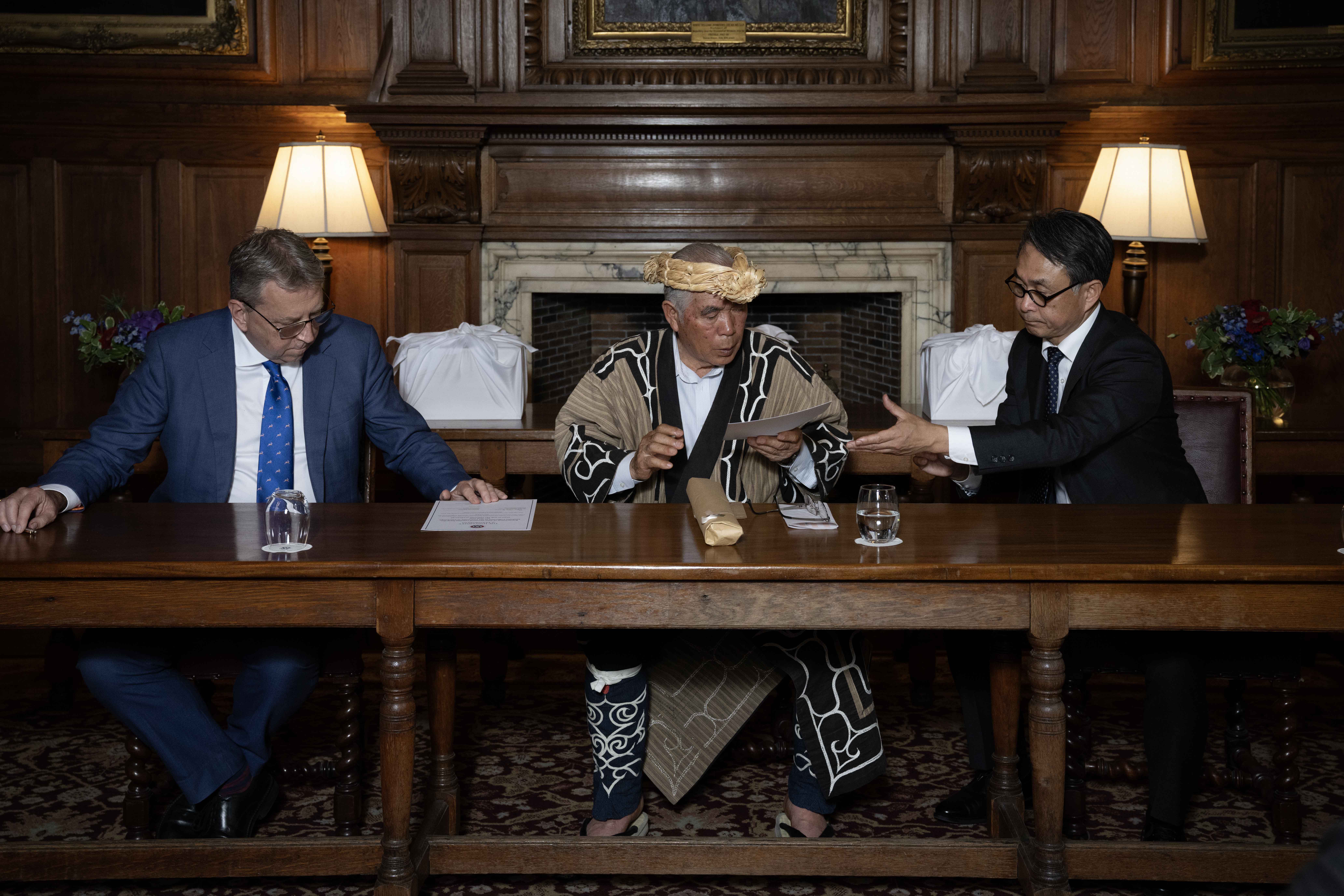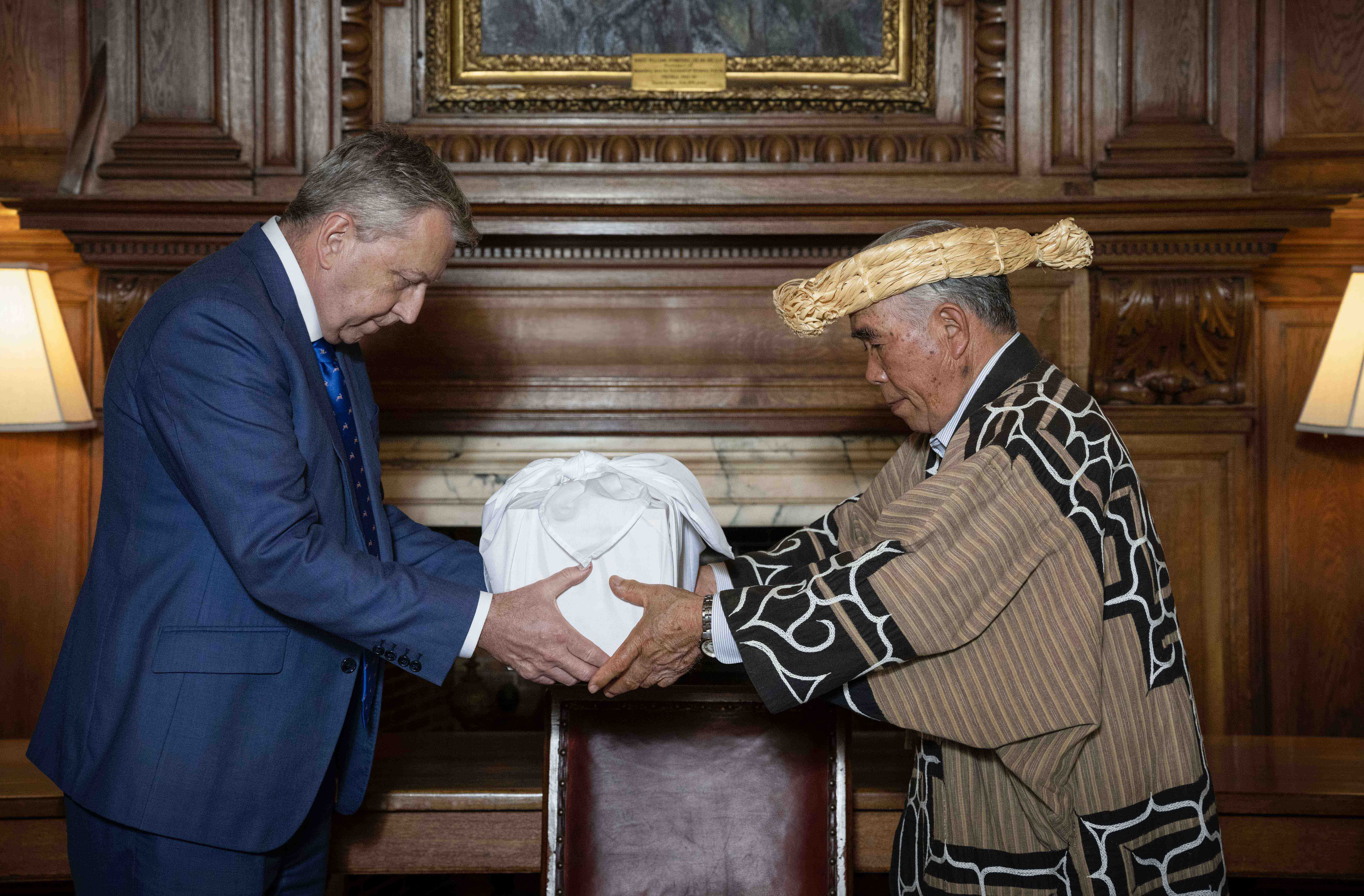University returns ancestral skulls to Ainu people of Japan
A handover ceremony took place at the University of Edinburgh with the Ainu Association of Hokkaido.

The skulls of three indigenous Ainu people have been returned to their community by a university.
The remains, which have been held at the University of Edinburgh’s Anatomical Museum for more than 100 years, were returned to the Ainu Association of Hokkaido during a formal ceremony in the city.
An indigenous group who predominantly inhabit the Japanese island of Hokkaido, members of the Ainu community held a traditional service at the university before the formal transfer of the skulls.
The Ainu lived in self-governing villages across northern Japan for centuries, maintaining a separate language and distinctive culture from the rest of the population.

On their return to Japan the skulls will be interred at a memorial site established in the Upopoy National Ainu Museum and Park, in accordance with Japanese government guidelines.
The remains were donated to the university in 1913 by anthropologist Neil Gordon Munro, a Scottish-born physician and Edinburgh graduate.
Dr Munro worked as director of the General Hospital in Yokohama for the majority of his career and lived in Japan until he died in 1942.
He was believed to be one of the first Westerners to write extensively on and make records of Ainu culture.
The Ainu were marginalised and subjected to studies in the late 19th and early 20th century, with remains and cultural artifacts taken and displayed or used for research in Japan and further afield.
Masaru Okawa, executive director of the Hokkaido Ainu Association, said: “Since it became clear that Ainu remains were taken both domestically and internationally for research purposes, our association has been advocating for the return of these remains to their respective regions and for respectful memorialization.
“We can only imagine the feelings of our ancestors who spent many years in foreign lands, but we believe they are pleased to return home.
“We are committed to continuing to honour the spirits of our ancestors with dignity, following the traditions handed down through generations.”

Professor Tom Gillingwater, chairman of anatomy at the University of Edinburgh, said: “Repatriations are an important part of the university’s efforts to care for, and address, its historical collections.
“Rather than being viewed as a diminishment of the university’s collections, they represent an important opportunity for the university to work with communities across the world in order to build new relationships and friendships.
“We are honoured to have been able to play a part in returning these remains to the Ainu community.”
Professor Sir Peter Mathieson, the university’s principal and vice-chancellor, said: “It has been a privilege to welcome representatives from the Ainu community and to work with them during this process.
“Repatriations are part of the university’s important ongoing work to review its colonial past and we are committed to returning remains in our care to their rightful descendants.”





